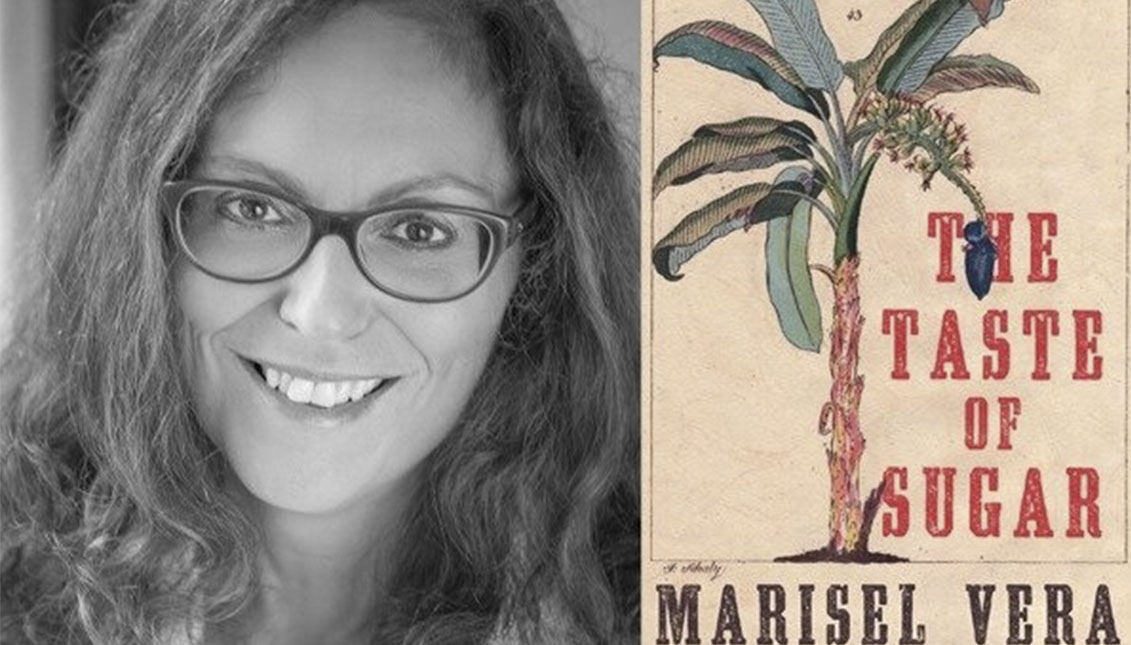
'The Taste of Sugar': Resistance, Love and Hurricanes in Puerto Rico's Memory
Defined as the Latino The Grapes of Wrath, Marisel Vera's latest novel is a vibrant historical portrait of the many oppressions confronting Puerto Ricans.
On Aug. 8, 1899, almost a year after the United States annexed Puerto Rico following the Spanish-American War, the deadly hurricane of San Ciriaco hit the island, destroying almost all its crops, especially coffee, and taking the lives of more than 3,000 people. Despite the disaster and economic and human loss, the U.S. government froze bank credit for agricultural operations, devalued the island's currency and forced Puerto Rican farmers to pay a sugar tariff that only benefited large American producers.
The result was the desperate flight of thousands of Puerto Ricans, who went to Hawaii to work on sugar plantations with the promise of the American dream.
This is the context depicted by Puerto Rican Marisel Vera in The Taste of Sugar (Liveright, 2020), a historical novel that since its publication last June, has been described by reviewers such as Ron Charles in The Washington Post as The Grapes of Wrath of American Latino literature.
In The Taste of Sugar, Vera, the daughter of a migrant family from Chicago, tells the story of love on a coffee plantation between Vicente Vega and Valentina Sanchez. After leaving Spain and the devastation caused by San Ciriaco, the young couple fights tooth and nail to save their land from creditors and when they don't succeed, leave for Hawaii with the idea of being able to rebuild their lives by working on its plantations. But there, the scythe of oppression continues.
"One interesting thing in Hawaii was the segregation. They basically wanted the Puerto Ricans to bleach the race, so they brought them to Hawaii. Because right at that time, the U.S. started this act of immigration against Asians. They still needed people to work on the plantations," the writer explained in an interview with The Chicago Tribune.
RELATED CONTENT
Although Vera wrote her book three years before Hurricane Maria, the echoes of the most recent disaster make their way into the novel as well. It shows the parallels between hurricanes, both separated by more than a century, and how on both occasions, the U.S. government responded in a similar way. Even now, the debate is raging as to what majority support for Puerto Rican statehood means to both countries, especially the United States, and whether the incoming Biden administration will really be a historic turning point, a hurricane, or simply a breeze for the island's future.
Beyond that, the author sheds light on the most hidden and forgotten aspects of Puerto Rican history and culture, as she notes in the acknowledgements section:
"As a daughter of Puerto Ricans who were taught little of their own country's history, I have been obsessed with learning about my heritage for years," she wrote.
Growing up in Humboldt Park, Chicago, Vera always felt the need to sort out her identity and her roots, but like many Puerto Ricans raised in the United States, found herself torn between a culture that reflected her community in movies and news, and an island where they were treated as Americans barely fluent in Spanish.
"Sometimes your relatives said your Spanish wasn't very good, they said you weren't really Puerto Rican. They called you American, but when you go out into the world, they don't call you American, you are Puerto Rican. You don't know where you are, you're like in the quicksands," said Vera.
A blend of Puerto Rican expressions and vibrant descriptions of the fields and the people's feelings, The Taste of Sugar is more than a story about love and uprooting, it is a testimony to how connected the histories of Puerto Rico and the United States are, and to the need to know the past so that memory can be part of change.











LEAVE A COMMENT:
Join the discussion! Leave a comment.